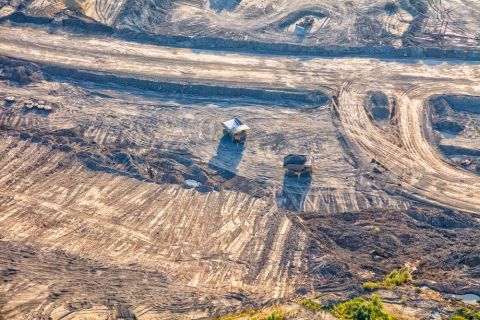The New York City Council is expected to vote on Dec. 15 to ban natural gas in new buildings, following in the footsteps of dozens of other smaller U.S. cities seeking to shift from fossil fuels to cleaner forms of energy.
Should the law pass, new buildings in the city of 8.8 million residents—biggest in the United States—will have to use electricity for heat and cooking.
In the near-term, the new law will do little to reduce carbon emissions in the Big Apple, as numerous older buildings will not be affected, and the new structures would use electricity generated with fossil fuels anyway. Longer-term, however, the state plans to stop using fossil fuels to generate power.
The law would apply to new buildings under seven stories high at the end of 2023 and those over seven stories in 2027. Until now, the most populated U.S. city that has banned natural gas in new buildings is San Jose in California with about 1 million residents.
In 2020, U.S. carbon emissions from fossil fuels fell to their lowest since 1983, but were expected to rise about 7% in 2021 because power providers were burning more coal to generate electricity due to a sharp increase in natural gas costs.
New York's move could mean a higher price tag for buildings using electricity for heat than those relying on natural gas. This winter, the average household in the U.S. Northeast is expected to pay $1,538 to heat their home with electricity, compared with natural gas at about $865.
"Using gas to produce power and then subsequently heat buildings is less efficient than using gas for heating directly," analysts at energy consultancy EBW Analytics Group said.
More than 40% of the power generated in New York State comes from fossil fuels, with another 29% from nuclear power and 22% from hydropower, according to federal energy data.
The power sector's carbon emissions in New York State should decline in the future because the state passed a law in 2019 requiring all electricity to come from clean, carbon-free sources of energy like renewables and nuclear by 2040.
Burning fuels for space and water heating in buildings accounts for nearly 40% of the city's total greenhouse gas (GHG) emissions, according to environmental advocacy group RMI, which evaluated city greenhouse gas data.
"Burning fracked gas to power buildings is a main driver of climate change and air pollution, which leads to catastrophic climate events and the premature death of an estimated one thousand New York City residents per year," Food & Water Watch and other environmental groups said in a statement.
The oil and gas industry, which opposed the proposal, said using gas for space heating would keep customer costs lower and reduce emissions especially when combined with clean fuels like hydrogen and renewable natural gas from landfills.
"Energy-efficient, low-carbon buildings could be powered by an innovative combination of natural gas and renewable energy (such as hydrogen) to both lower emissions and utility bills," the American Petroleum Institute, an oil and gas lobby group, said as part of the city council hearings on the bill.
In Europe, meanwhile, where natural gas shortages have caused energy prices to spike to record highs in recent months, the European Union is considering whether to label gas-fired power plants as a green investment in efforts to reach climate goals.
Recommended Reading
Bobby Tudor on Capital Access and Oil, Gas Participation in the Energy Transition
2024-04-05 - Bobby Tudor, the founder and CEO of Artemis Energy Partners, says while public companies are generating cash, private equity firms in the upstream business are facing more difficulties raising new funds, in this Hart Energy Exclusive interview.
Uinta Basin: 50% More Oil for Twice the Proppant
2024-03-06 - The higher-intensity completions are costing an average of 35% fewer dollars spent per barrel of oil equivalent of output, Crescent Energy told investors and analysts on March 5.
Kimmeridge Fast Forwards on SilverBow with Takeover Bid
2024-03-13 - Investment firm Kimmeridge Energy Management, which first asked for additional SilverBow Resources board seats, has followed up with a buyout offer. A deal would make a nearly 1 Bcfe/d Eagle Ford pureplay.
Canadian Natural Resources Boosting Production in Oil Sands
2024-03-04 - Canadian Natural Resources will increase its quarterly dividend following record production volumes in the quarter.
The One Where EOG’s Stock Tanked
2024-02-23 - A rare earnings miss pushed the wildcatter’s stock down as much as 6%, while larger and smaller peers’ share prices were mostly unchanged. One analyst asked if EOG is like Narcissus.





